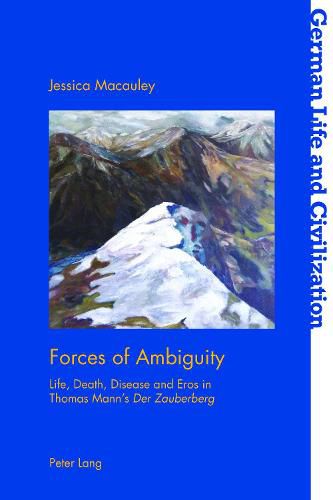Readings Newsletter
Become a Readings Member to make your shopping experience even easier.
Sign in or sign up for free!
You’re not far away from qualifying for FREE standard shipping within Australia
You’ve qualified for FREE standard shipping within Australia
The cart is loading…






Thomas Mann’s novel Der Zauberberg (1913-1924) illustrates a change in the author’s conceptions of life, death, disease and Eros following World War I. Set in a Swiss tuberculosis sanatorium, the novel’s main protagonist, Hans Castorp, comes into contact with three pedagogic figures who each represent a different attitude towards these themes. The humanist Settembrini, for example, affirms life but is repulsed by Eros, disease and death; the Jesuit ascetic Naphta glorifies erotic suffering and death while denying life; and the coffee magnate Peeperkorn celebrates life and Eros - yet to a pathological extent. This book relies on intertextual theory to examine the relation of these conceptions of life, death, disease and Eros within the novel to the thought of Novalis, Arthur Schopenhauer, Friedrich Nietzsche and Sigmund Freud. Exploring the dialogic clash of their conceptions together with the sociological implications of their work, this author investigates how the relationships between Der Zauberberg and the intertexts influence the reader’s interpretation of the nature of life, death, disease and Eros as well as the effect they have on the culture depicted in the novel.
$9.00 standard shipping within Australia
FREE standard shipping within Australia for orders over $100.00
Express & International shipping calculated at checkout
Thomas Mann’s novel Der Zauberberg (1913-1924) illustrates a change in the author’s conceptions of life, death, disease and Eros following World War I. Set in a Swiss tuberculosis sanatorium, the novel’s main protagonist, Hans Castorp, comes into contact with three pedagogic figures who each represent a different attitude towards these themes. The humanist Settembrini, for example, affirms life but is repulsed by Eros, disease and death; the Jesuit ascetic Naphta glorifies erotic suffering and death while denying life; and the coffee magnate Peeperkorn celebrates life and Eros - yet to a pathological extent. This book relies on intertextual theory to examine the relation of these conceptions of life, death, disease and Eros within the novel to the thought of Novalis, Arthur Schopenhauer, Friedrich Nietzsche and Sigmund Freud. Exploring the dialogic clash of their conceptions together with the sociological implications of their work, this author investigates how the relationships between Der Zauberberg and the intertexts influence the reader’s interpretation of the nature of life, death, disease and Eros as well as the effect they have on the culture depicted in the novel.